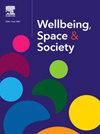基础社区因素:加拿大魁北克市社区对儿童早期发展的影响
IF 2.2
Q2 GEOGRAPHY
引用次数: 0
摘要
全面了解社区层面因素对幼儿发展的影响,以及在当地背景下发挥作用的过程,可能有助于确定促进幼儿福祉的杠杆点。这份简短的报告描述了魁北克市(加拿大)的一项小规模地方倡议,旨在探索社区层面因素与幼儿发展之间的联系,以及这些联系背后的机制。探索性比较案例设计涉及四个城市弱势社区,尽管社会经济地位(SES)相似,但每个社区的ECD结果不同。我们采用混合方法记录了五类社区层面的因素:社区的自然环境、社会环境、服务、治理和社会经济地位。定量数据包括行政、调查和监测数据,定性数据包括实地观察和对21个关键利益相关者或服务提供商的访谈。通过对数据进行三角测量,确定了19个基础社区因素(ffc),涵盖了5类社区层面的因素。这些FCFs突出了当地以及更广泛范围内的杠杆点和潜在行动领域。这项研究虽然是探索性的,但通过关注社区对幼儿发展的影响以及如何影响,有助于理解社区影响。此外,它还提供了初步见解,为旨在减少风险因素和促进保护因素的干预措施提供信息,促进系统性变革,以支持幼儿的福祉。本文章由计算机程序翻译,如有差异,请以英文原文为准。
Foundational community factors: A local look at what and how neighborhoods matter for early childhood development in Quebec city, Canada
A comprehensive understanding of the influences of community-level factors on early childhood development (ECD), as well as the processes at play in local context, may aid to identify leverages points to enhance the wellbeing of young children. This short communication describes a small-scale local initiative in Quebec City (Canada) aiming to explore associations between community-level factors and ECD, as well as the mechanism underlying these associations. The exploratory comparative case design involved four urban disadvantaged neighborhoods, each exhibiting different ECD outcomes despite similar socio-economic status (SES). We employed mixed methods to document five categories of community-level factors: neighborhoods’ physical environment, social environment, services, governance, and SES. Quantitative data included administrative, survey, and monitoring data, while qualitative data involved field observations and interviews with 21 key stakeholders or service providers. The triangulation of data led to the identification of 19 Foundational Community Factors (FCFs) spanning the five categories of community-level factors. These FCFs highlight leverage points and potential areas of action in the local context, as well as more broadly. This study, though exploratory, contributes to the understanding of neighborhood effects by focusing on what and how neighborhoods matter for ECD. Moreover, it provides preliminary insights to inform interventions aimed at reducing risk factors and promoting protective factors, fostering systemic changes to support the wellbeing of young children.
求助全文
通过发布文献求助,成功后即可免费获取论文全文。
去求助
来源期刊

Wellbeing Space and Society
Social Sciences-Social Sciences (miscellaneous)
CiteScore
2.70
自引率
0.00%
发文量
46
审稿时长
124 days
 求助内容:
求助内容: 应助结果提醒方式:
应助结果提醒方式:


